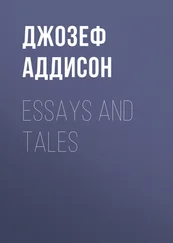Noah Webster - A Collection of Essays and Fugitiv Writings
Здесь есть возможность читать онлайн «Noah Webster - A Collection of Essays and Fugitiv Writings» — ознакомительный отрывок электронной книги совершенно бесплатно, а после прочтения отрывка купить полную версию. В некоторых случаях можно слушать аудио, скачать через торрент в формате fb2 и присутствует краткое содержание. Жанр: foreign_prose, foreign_antique, на английском языке. Описание произведения, (предисловие) а так же отзывы посетителей доступны на портале библиотеки ЛибКат.
- Название:A Collection of Essays and Fugitiv Writings
- Автор:
- Жанр:
- Год:неизвестен
- ISBN:нет данных
- Рейтинг книги:5 / 5. Голосов: 1
-
Избранное:Добавить в избранное
- Отзывы:
-
Ваша оценка:
- 100
- 1
- 2
- 3
- 4
- 5
A Collection of Essays and Fugitiv Writings: краткое содержание, описание и аннотация
Предлагаем к чтению аннотацию, описание, краткое содержание или предисловие (зависит от того, что написал сам автор книги «A Collection of Essays and Fugitiv Writings»). Если вы не нашли необходимую информацию о книге — напишите в комментариях, мы постараемся отыскать её.
A Collection of Essays and Fugitiv Writings — читать онлайн ознакомительный отрывок
Ниже представлен текст книги, разбитый по страницам. Система сохранения места последней прочитанной страницы, позволяет с удобством читать онлайн бесплатно книгу «A Collection of Essays and Fugitiv Writings», без необходимости каждый раз заново искать на чём Вы остановились. Поставьте закладку, и сможете в любой момент перейти на страницу, на которой закончили чтение.
Интервал:
Закладка:
Are parents and guardians ignorant, that children always imitate those with whom they live or associate? That a boy, bred in the woods, will be a savage? That another, bred in the army, will have the manners of a soldier? That a third, bred in a kitchen, will speak the language, and possess the ideas, of servants? And that a fourth, bred in genteel company, will have the manners of a gentleman? We cannot believe that many people are ignorant of these truths. Their conduct therefore can be ascribed to nothing but inattention or fear of expense. It is perhaps literally true, that a wild life among savages is preferable to an Education in a kitchen, or under a drunken tutor; for savages would leave the mind uncorrupted with the vices, which reign among slaves and the depraved part of civilized nations. It is therefore a point of infinite importance to society, that youth should not associate with persons whose manners they ought not to imitate; much less should they be doomed to pass the most susceptable period of life, with clowns, profligates and slaves.
There are people so ignorant of the constitution of our natures, as to declare, that young people should see vices and their consequences, that they may learn to detest and shun them. Such reasoning is like that of the novel writers, who attempt to defend their delineations of abandoned characters; and that of stage players, who would vindicate the obscene exhibitions of a theater; but the reasoning is totally false. 7 7 The fact related by Justin, of an ancient people, will apply universally. "Tanto plus in illis proficit victiorum ignoratio, quam in his cognitio virtutis." An ignorance of vice has a better effect, than a knowlege of virtue.
Vice always spreads by being published; young people are taught many vices by fiction, books or public exhibitions; vices, which they never would have known, had they never read such books or attended such public places. Crimes of all kinds, vices, judicial trials necessarily obscene, and infamous punishments, should, if possible, be concealed from the young. An examination in a court of justice may teach the tricks of a knave, the arts of a thief, and the evasions of hackneyed offenders, to a dozen young culprits, and even tempt those who have never committed a crime, to make a trial of their skill. A newspaper may spread crimes; by communicating to a nation the knowlege of an ingenious trick of villainy, which, had it been suppressed, might have died with its first inventor. It is not true that the effects of vice and crimes deter others from the practice; except when rarely seen. On the other hand, frequent exhibitions either cease to make any impressions on the minds of spectators, or else reconcile them to a course of life, which at first was disagreeable.
"Vice is a monster of so frightful mien,
As to be hated, needs but to be seen;
Yet seen too oft, familiar with her face,
We first endure, then pity, then embrace."
For these reasons, children should keep the best of company, that they might have before them the best manners, the best breeding, and the best conversation. Their minds should be kept untainted, till their reasoning faculties have acquired strength, and the good principles which may be planted in their minds, have taken deep root. They will then be able to make a firm and probably a successful resistance, against the attacks of secret corruption and brazen libertinism.
Our legislators frame laws for the suppression of vice and immorality; our divines thunder, from the pulpit, the terrors of infinite wrath, against the vices that stain the characters of men. And do laws and preaching effect a reformation of manners? Experience would not give a very favorable answer to this inquiry. The reason is obvious; the attempts are directed to the wrong objects. Laws can only check the public effects of vicious principles; but can never reach the principles themselves; and preaching is not very intelligible to people, till they arrive at an age when their principles are rooted, or their habits firmly established. An attempt to eradicate old habits, is as absurd, as to lop off the branches of a huge oak, in order to root it out of a rich soil. The most that such clipping will effect, is to prevent a further growth.
The only practicable method to reform mankind, is to begin with children; to banish, if possible, from their company, every low bred, drunken, immoral character. Virtue and vice will not grow together in a great degree, but they will grow where they are planted, and when one has taken root, it is not easily supplanted by the other. The great art of correcting mankind therefore, consists in prepossessing the mind with good principles.
For this reason society requires that the Education of youth should be watched with the most scrupulous attention. Education, in a great measure, forms the moral characters of men, and morals are the basis of government. 8 8 Plus ibi boni mores valent, quam alibi bonæ leges. Tac. de Mor. Germ. 19.
Education should therefore be the first care of a Legislature; not merely the institution of schools, but the furnishing of them with the best men for teachers. A good system of Education should be the first article in the code of political regulations; for it is much easier to introduce and establish an effectual system for preserving morals, than to correct, by penal statutes, the ill effects of a bad system. I am so fully persuaded of this, that I shall almost adore that great man, who shall change our practice and opinions, and make it respectable for the first and best men to superintend the Education of youth.
Another defect in our schools, which, since the revolution, is become inexcuseable, is the want of proper books. The collections which are now used consist of essays that respect foreign and ancient nations. The minds of youth are perpetually led to the history of Greece and Rome or to Great Britain; boys are constantly repeating the declamations of Demosthenes and Cicero, or debates upon some political question in the British Parliment. These are excellent specimens of good sense, polished stile and perfect oratory; but they are not interesting to children. They cannot be very useful, except to young gentlemen who want them as models of reasoning and eloquence, in the pulpit or at the bar.
But every child in America should be acquainted with his own country. He should read books that furnish him with ideas that will be useful to him in life and practice. As soon as he opens his lips, he should rehearse the history of his own country; he should lisp the praise of liberty, and of those illustrious heroes and statesmen, who have wrought a revolution in her favor.
A selection of essays, respecting the settlement and geography of America; the history of the late revolution and of the most remarkable characters and events that distinguished it, and a compendium of the principles of the federal and provincial governments, should be the principal school book in the United States. These are interesting objects to every man; they call home the minds of youth and fix them upon the interests of their own country, and they assist in forming attachments to it, as well as in enlarging the understanding.
"It is observed by the great Montesquieu, that the laws of education ought to be relative to the principles of the government." 9 9 Spirit of Laws. Book 4.
In despotic governments, the people should have little or no education, except what tends to inspire them with a servile fear. Information is fatal to despotism.
In monarchies, education should be partial, and adapted to the rank of each class of citizens. But "in a republican government," says the same writer, "the whole power of education is required." Here every class of people should know and love the laws. This knowlege should be diffused by means of schools and newspapers; and an attachment to the laws may be formed by early impressions upon the mind.
Читать дальшеИнтервал:
Закладка:
Похожие книги на «A Collection of Essays and Fugitiv Writings»
Представляем Вашему вниманию похожие книги на «A Collection of Essays and Fugitiv Writings» списком для выбора. Мы отобрали схожую по названию и смыслу литературу в надежде предоставить читателям больше вариантов отыскать новые, интересные, ещё непрочитанные произведения.
Обсуждение, отзывы о книге «A Collection of Essays and Fugitiv Writings» и просто собственные мнения читателей. Оставьте ваши комментарии, напишите, что Вы думаете о произведении, его смысле или главных героях. Укажите что конкретно понравилось, а что нет, и почему Вы так считаете.












